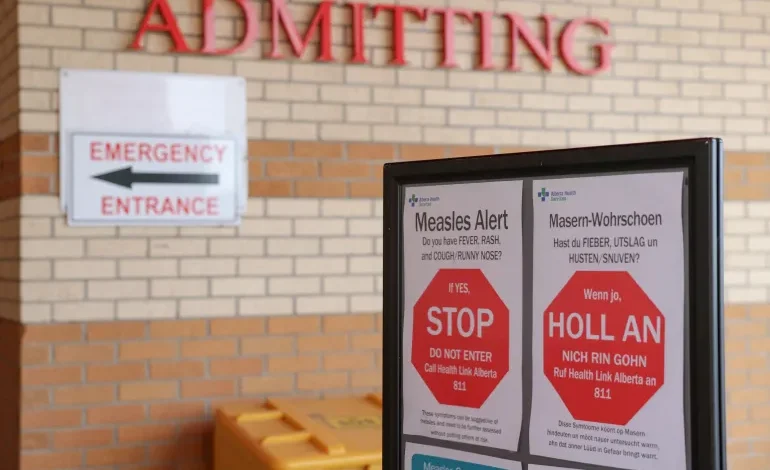Why has Canada lost its measles-free status – and could the US be next?

After nearly 30 years, Canada has lost its measles “elimination” status, which, by default, has caused the overall Americas region to lose its status as well.
In a statement issued on Monday, the country’s Public Health Agency stated that Canada was experiencing a “large, multi-jurisdictional outbreak of measles” which began in October last year.
Over the past year, the agency has recorded cases in Alberta, British Columbia, Manitoba, New Brunswick, Nova Scotia, Ontario, Prince Edward Island, Quebec, Saskatchewan and the Northwest Territories. Overall, 5,000 positive cases of the illness and the deaths of two premature babies have been reported.
“Canada can re-establish its measles elimination status once transmission of the measles strain associated with the current outbreak is interrupted for at least 12 months,” the agency said.
But Antony Black, a senior lecturer in life sciences at the University of Westminster in England, told Al Jazeera that Canada’s loss of its elimination status represented a “major backwards step on the path towards the control of this highly infectious and serious disease”.
Here’s what we know about the loss of the elimination status:
What is measles?
It is a highly infectious virus which can be life-threatening if not caught early.
The illness, which is spread through the air when an infected person coughs or sneezes, begins with cold-like symptoms, including a runny nose, high temperature and sore, red eyes.
A few days after infection, small white spots can appear inside the cheeks and on the back of the lips. A rash then begins on the face and behind the ears before spreading across the body – the main telltale sign of the illness, according to information from NHS England.
In the worst-case scenario, measles can cause pneumonia and become life-threatening. Babies and anyone with a weakened immune system are most at risk.
Measles is widely prevented through the use of the MMR (measles, mumps and rubella) vaccine, which is administered in two doses to children at one year old and three years old.
According to the US Centres for Disease Control and Prevention (CDC), two doses of the vaccine are 97 percent effective in preventing a measles infection.










